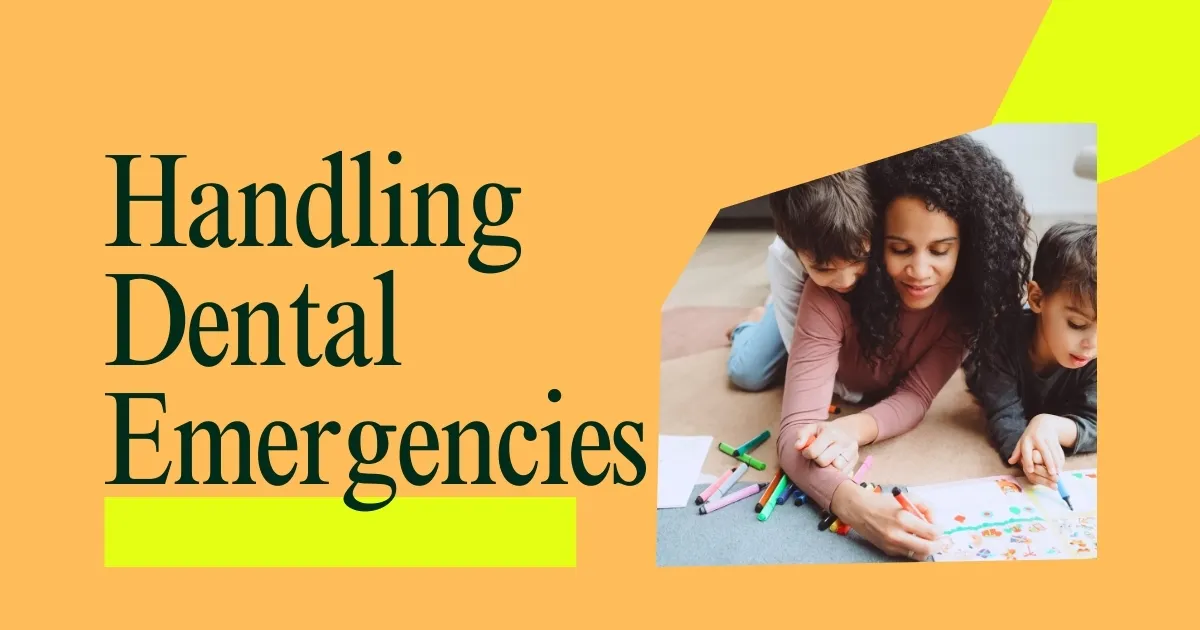Kids lead active lives, and sometimes accidents happen. When those accidents involve teeth, knowing what to do can make the difference between saving and losing a tooth. If your child experiences a dental emergency in Wichita Falls, staying calm and taking quick, appropriate action is crucial. Here’s what every parent should know about common dental emergencies and how to handle them.
Common Pediatric Dental Emergencies
- Knocked-Out Tooth: One of the most time-sensitive dental emergencies requiring immediate attention.
- Broken or Chipped Tooth: From minor chips to major fractures involving the nerve.
- Severe Toothache: Could indicate infection, decay, or injury to the tooth.
- Lost Filling or Crown: Can cause pain and sensitivity if left untreated.
- Dental Trauma: Injuries to gums, cheeks, tongue, or jaw.
Step-by-Step Emergency Response
When a dental emergency strikes, knowing these steps can help protect your child’s oral health:
For a Knocked-Out Permanent Tooth
Time is essential! Find the tooth and pick it up by the crown (the chewing surface), not the root. Gently rinse it with water if it’s dirty, but don’t scrub it or remove any attached tissue. If possible, try to reinsert the tooth into the socket. If that’s not possible, place the tooth in a container of milk, saline solution, or saliva. Then contact your Wichita Falls pediatric dentist immediately—ideally within 30 minutes.
For a Broken or Chipped Tooth
Rinse your child’s mouth with warm water and apply cold compresses to reduce swelling. Save any tooth fragments if possible. Even small chips should be evaluated by a dentist, as they can have sharp edges that irritate soft tissues and may indicate deeper damage.
For a Severe Toothache
Rinse with warm salt water and check for food particles caught between teeth. If pain persists, contact your pediatric dentist. Don’t place aspirin directly on the gums or tooth, as this can cause tissue damage.
According to the American Dental Association, proper emergency response can significantly improve outcomes for dental injuries. Taking quick action often makes treatment simpler and more successful.
When to Head to the Emergency Room vs. the Dentist
Most dental emergencies are best handled by a pediatric dentist, who has specialized training in treating children’s dental issues. However, you should go to the emergency room if your child experiences:
- Severe facial trauma beyond just the teeth
- Jaw fractures or potential breaks
- Cuts that may require stitches
- Severe swelling that affects breathing or swallowing
For families in Wichita Falls, having a pediatric dental emergency plan is important. Program your dentist’s emergency number into your phone, and know their after-hours protocol. Our practice offers emergency appointments for both existing patients and new patients experiencing urgent dental problems.
Prevention is always preferable to emergency treatment. Sports mouthguards, regular dental checkups, and teaching children safety habits can help avoid many dental emergencies. But accidents happen, and when they do, knowing how to respond quickly and appropriately can make all the difference.
Remember, our team is here to help when dental emergencies occur. Don’t hesitate to call us for guidance, even if you’re unsure whether the situation requires immediate attention. We’re committed to keeping your child’s smile healthy, even in unexpected circumstances!



